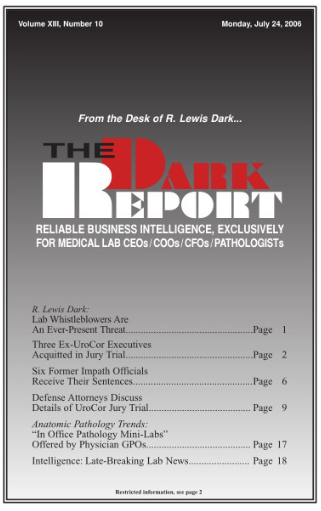CEO SUMMARY: On June 30, 2006,three former executives of UroCor,Inc.,accused by the U.S. Attorney of anti-kickback and securities violations, stood and heard the jury verdict in their case. “Not guilty on all counts,” stated the jury foreman. Thus ended the effort to convict former executives of a public lab company of violating Medicare anti-kickback laws …
Three Ex-UroCor Execs Acquitted in Jury Trial Read More »
To access this post, you must purchase The Dark Report.


